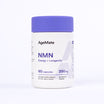Key Takeaways:
Think of your heart as a skilled jazz musician. Just as a jazz artist improvises and adjusts to the rhythm of the band, a healthy heart adapts its rhythm through slight variations in the time between beats.
These variations, known as Heart Rate Variability (HRV), are key indicators of your autonomic nervous system’s health, reflecting your body’s ability to adapt to stress and environmental changes. Dive into the fascinating mechanisms behind HRV.
Mechanisms Behind Heart Rate Variability
HRV is regulated by the autonomic nervous system (ANS), which consists of two main branches: the sympathetic and the parasympathetic nervous systems. The sympathetic nervous system prepares the body for 'fight or flight' responses by increasing heart rate and blood pressure. In contrast, the parasympathetic nervous system promotes 'rest and digest' activities, slowing the heart rate and conserving energy (R).
The dynamic interplay between these systems creates the variability observed in HRV. Higher HRV indicates a well-balanced autonomic system that can efficiently respond to stress and recovery.
Significance of Monitoring HRV
Monitoring HRV provides valuable insights into your cardiovascular health, stress levels, and overall well-being. It serves as a biomarker for various conditions, including heart disease, mental health disorders, and chronic stress.
Higher HRV generally signifies greater resilience and adaptability, while lower HRV may indicate poor autonomic function and increased vulnerability to stress and illness. Regular HRV tracking can help you identify patterns and make lifestyle changes to improve your health (R).

Techniques for Measuring HRV
HRV can be measured using various devices, including electrocardiograms (ECGs), chest straps, and wearable technology like smartwatches. For instance, the Apple Watch offers HRV tracking through its heart rate sensor, providing users with real-time data.
These measurements typically involve short-term recordings under resting conditions to capture accurate baseline values. It's important to measure HRV consistently at the same time each day, preferably in the morning before getting out of bed, to obtain reliable data (R).
Electrocardiograms (ECGs) are considered the gold standard for HRV measurement, providing detailed information about heart function. However, for everyday use, wearable devices offer a convenient and accessible way to monitor HRV.
Apps and devices that measure HRV can provide insights into daily fluctuations and trends over time, helping you understand how lifestyle factors affect your autonomic nervous system (R).

Evaluating HRV Scores: What’s Considered Normal?
HRV scores can vary widely among individuals and are influenced by factors such as age, fitness level, and overall health. There isn't a universal 'good' or 'bad' HRV score, but generally, higher HRV is associated with better cardiovascular fitness and autonomic function.
It's important to consider individual baseline measurements and track changes over time rather than relying on a single reading. For example, HRV tends to decrease with ageing, reflecting changes in autonomic regulation. Therefore, a normal HRV range for a young adult may differ from that of an older individual (R).
Understanding the heart rate variability normal range by age can help set realistic expectations and goals. HRV norms can be stratified by age groups to provide more context for individual scores. Young, healthy individuals typically have higher HRV compared to older adults.
Fitness enthusiasts and athletes often exhibit higher HRV due to their enhanced cardiovascular health and autonomic balance. It’s essential to focus on trends and changes in your HRV rather than comparing absolute values with others (R).
Factors Influencing HRV Levels
Several factors impact HRV, including:
Stress: Chronic stress decreases HRV by over-activating the sympathetic nervous system. Managing stress through relaxation techniques can help improve HRV (R).
Physical Activity: Regular exercise enhances parasympathetic activity, improving HRV. Aerobic exercises like walking, running, and cycling are particularly beneficial (R).
Sleep Quality: Adequate and restful sleep is crucial for maintaining high HRV. Poor sleep can disrupt autonomic balance, leading to lower HRV (R).
Nutrition: A balanced diet rich in antioxidants and omega-3 fatty acids supports autonomic function. Avoiding excessive caffeine and alcohol can also help maintain high HRV (R).
Ageing: HRV tends to decrease with age, reflecting changes in autonomic regulation. However, maintaining a healthy lifestyle can mitigate some of these effects (R).
Environmental factors, such as exposure to toxins or pollutants, can also influence HRV. Additionally, psychological factors like anxiety and depression have been shown to reduce HRV, indicating the profound connection between mental health and autonomic function. Genetics may play a role in baseline HRV levels, but lifestyle choices significantly impact your ability to maintain or improve HRV (R).

Strategies to Enhance Your HRV: What the Experts Say
Improving HRV involves adopting a holistic approach to lifestyle:
Regular Exercise: Aerobic activities like walking, running, and cycling boost HRV by strengthening the cardiovascular system. Incorporating resistance training and flexibility exercises can also provide additional benefits. Dr. Rhonda Patrick, a renowned health researcher, emphasises the importance of regular physical activity in improving HRV and overall cardiovascular health (R, R).
Mindfulness Practices: Techniques such as meditation, deep breathing, and yoga activate the parasympathetic nervous system, enhancing HRV. These practices can help reduce stress and improve overall well-being. Dr. Andrew Huberman, a neuroscientist and professor at Stanford University, highlights the benefits of mindfulness and breathing exercises in promoting autonomic balance and improving HRV (R, R).
Optimal Sleep Hygiene: Prioritise quality sleep by maintaining a consistent sleep schedule and creating a restful environment. Aim for 7-9 hours of sleep per night and avoid screens before bedtime. Establishing a relaxing bedtime routine can help signal your body that it’s time to wind down. Dr. Matthew Walker, a sleep expert and author of “Why We Sleep,” underscores the critical role of sleep in maintaining high HRV and overall health (R, R).
Healthy Diet: Consuming a diet rich in whole foods, lean proteins, and healthy fats supports autonomic balance. Include plenty of fruits, vegetables, nuts, and seeds in your diet to provide essential nutrients for heart health. Omega-3 fatty acids, found in fish and flaxseeds, are particularly beneficial for HRV. Nutritionist and author Dr. Michael Greger advocates for a plant-based diet to enhance heart health and HRV (R, R).
Stress Management: Implementing stress reduction strategies like mindfulness and relaxation techniques helps maintain high HRV. Finding healthy outlets for stress, such as hobbies or social activities, can also be beneficial. Techniques like progressive muscle relaxation or guided imagery can also be effective. Dr. Jon Kabat-Zinn, creator of the Mindfulness-Based Stress Reduction program, recommends mindfulness meditation to improve stress resilience and HRV (R, R).
When to Consult a Healthcare Professional
If you notice consistently low HRV readings or experience symptoms such as chronic fatigue, anxiety, or heart palpitations, it’s advisable to seek medical advice. A healthcare professional can assess your HRV in the context of your overall health and provide tailored recommendations. Conditions such as heart disease, diabetes, and certain medications can affect HRV, so it's important to discuss any concerns with your doctor.
In cases where low HRV is linked to medical conditions, professional guidance is essential for appropriate management. Healthcare providers may recommend specific interventions or lifestyle modifications to improve HRV and overall health. Advanced diagnostic tools and comprehensive health assessments can provide a clearer picture of how your autonomic nervous system is functioning.
Conclusion
Heart Rate Variability is a powerful tool for assessing and improving your overall health and resilience. By understanding and monitoring your HRV, you can make informed lifestyle choices that support your cardiovascular and autonomic health. Incorporating regular exercise, mindfulness practices, quality sleep, a healthy diet, and effective stress management techniques can significantly enhance your HRV.
Balancing stress and recovery is essential for longevity. Our Longevity Blend offers key nutrients to support your body as you explore ways to improve your heart rate variability.
.





















